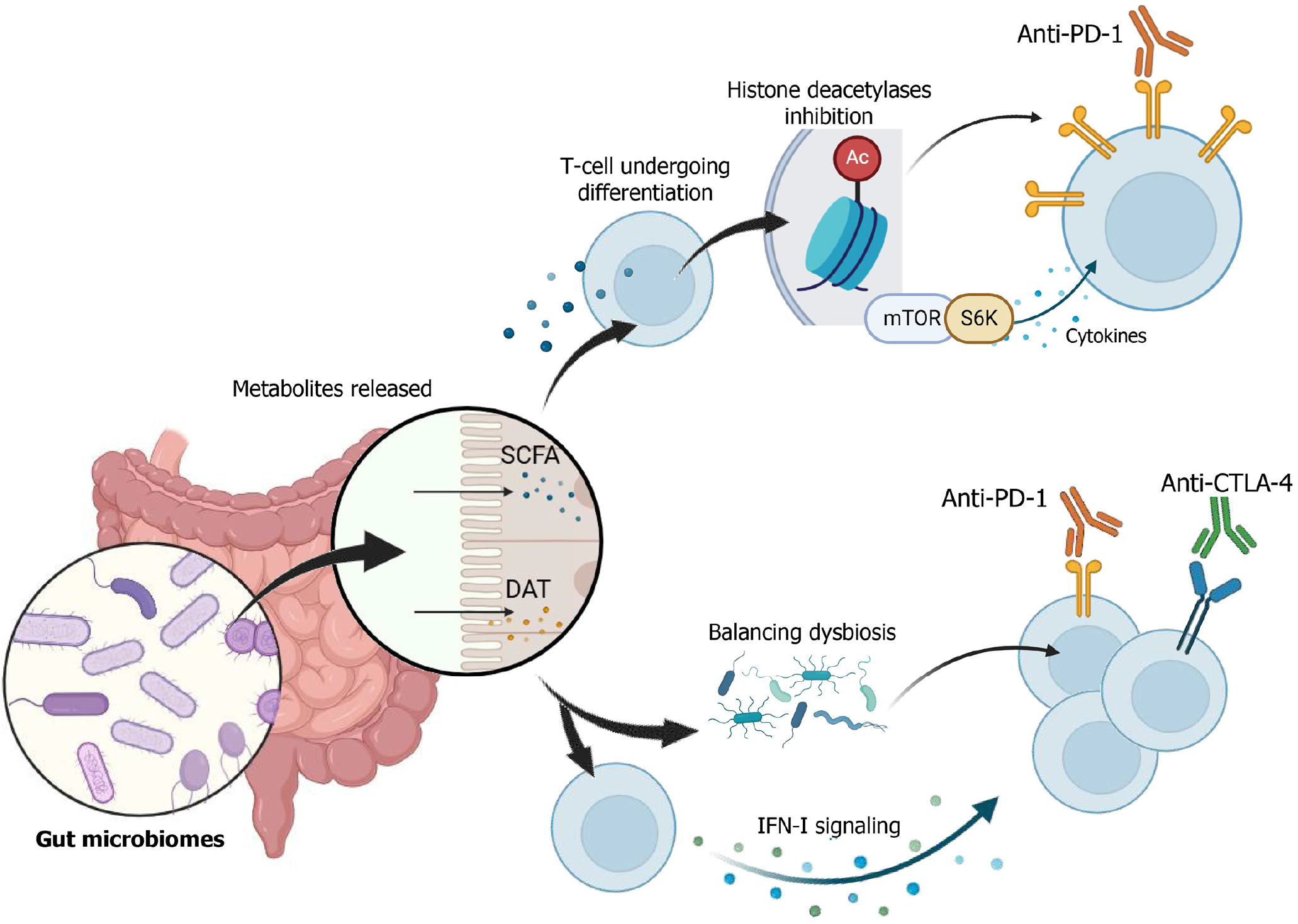Copyright
©The Author(s) 2025.
World J Hepatol. Jul 27, 2025; 17(7): 106810
Published online Jul 27, 2025. doi: 10.4254/wjh.v17.i7.106810
Published online Jul 27, 2025. doi: 10.4254/wjh.v17.i7.106810
Figure 2 Mechanism of action of gut microbiomes and immune checkpoint inhibitors.
Gut microbiomes will release metabolites, such as short-chain fatty acids (SCFA) and desamino tyrosine (DAT). SCFA works by entering T cells and inhibiting histone deacetylases (HDAC). Inhibition of HDAC can affect the mechanistic target of rapamycin-ribosomal S6 kinase pathway, which will express cytokines. It leads to the upregulation of programmed cell death 1 ligands and will enhance immunotherapy response. Furthermore, DAT expression may alter gut microbiome composition and balance dysbiosis. DAT also promotes type I interferon signaling, which will promote cytotoxic T-cell and cancer apoptosis, which eventually enhance immune checkpoint inhibitor effectiveness. SCFA: Short-chain fatty acids; DAT: Desamino tyrosine; PD-1: Programmed cell death 1; CTLA-4: Cytotoxic T-lymphocyte-associated protein 4.
- Citation: Pamungkas KMN, Lesmana Dewi PIS, Alamsyah AZ, Dewi NLPY, Dewi NNGK, Mariadi IK, Sindhughosa DA. Microbiome dysbiosis and immune checkpoint inhibitors: Dual targets in Hepatocellular carcinoma management. World J Hepatol 2025; 17(7): 106810
- URL: https://www.wjgnet.com/1948-5182/full/v17/i7/106810.htm
- DOI: https://dx.doi.org/10.4254/wjh.v17.i7.106810









